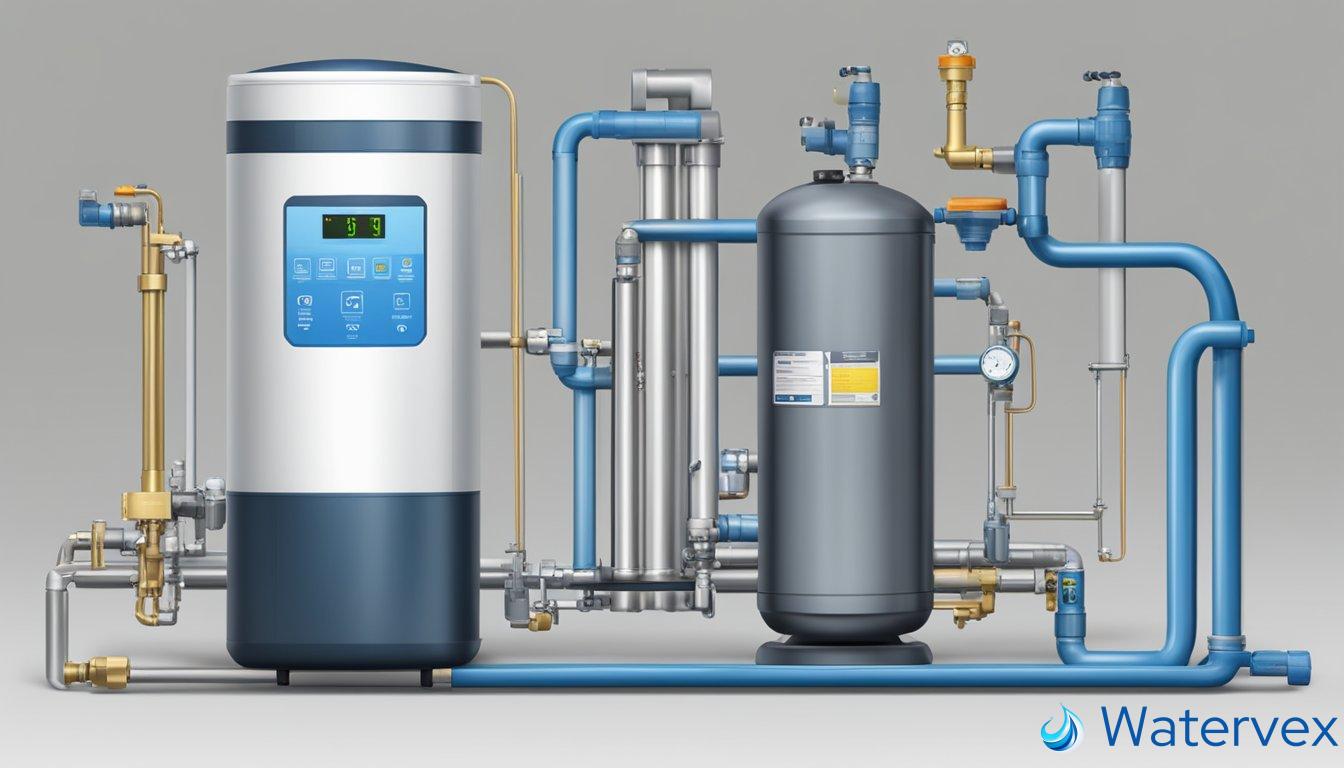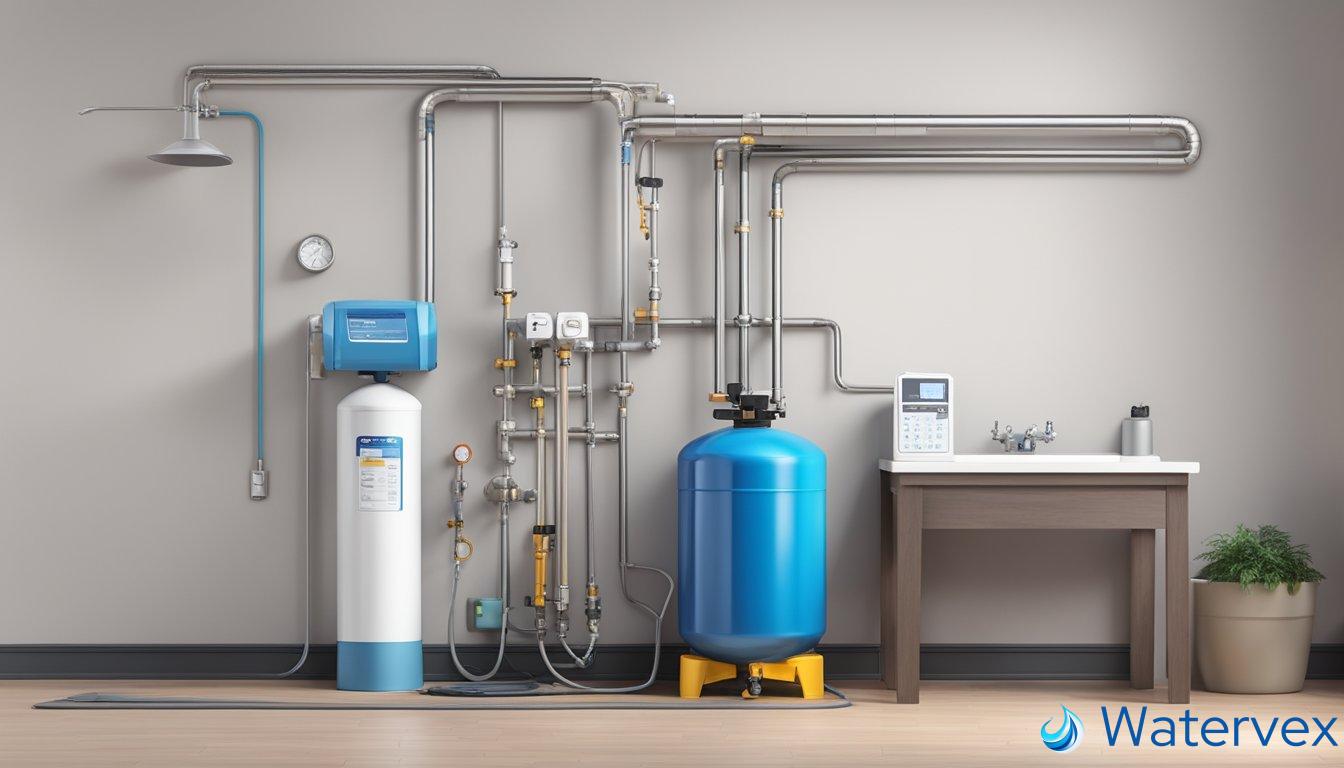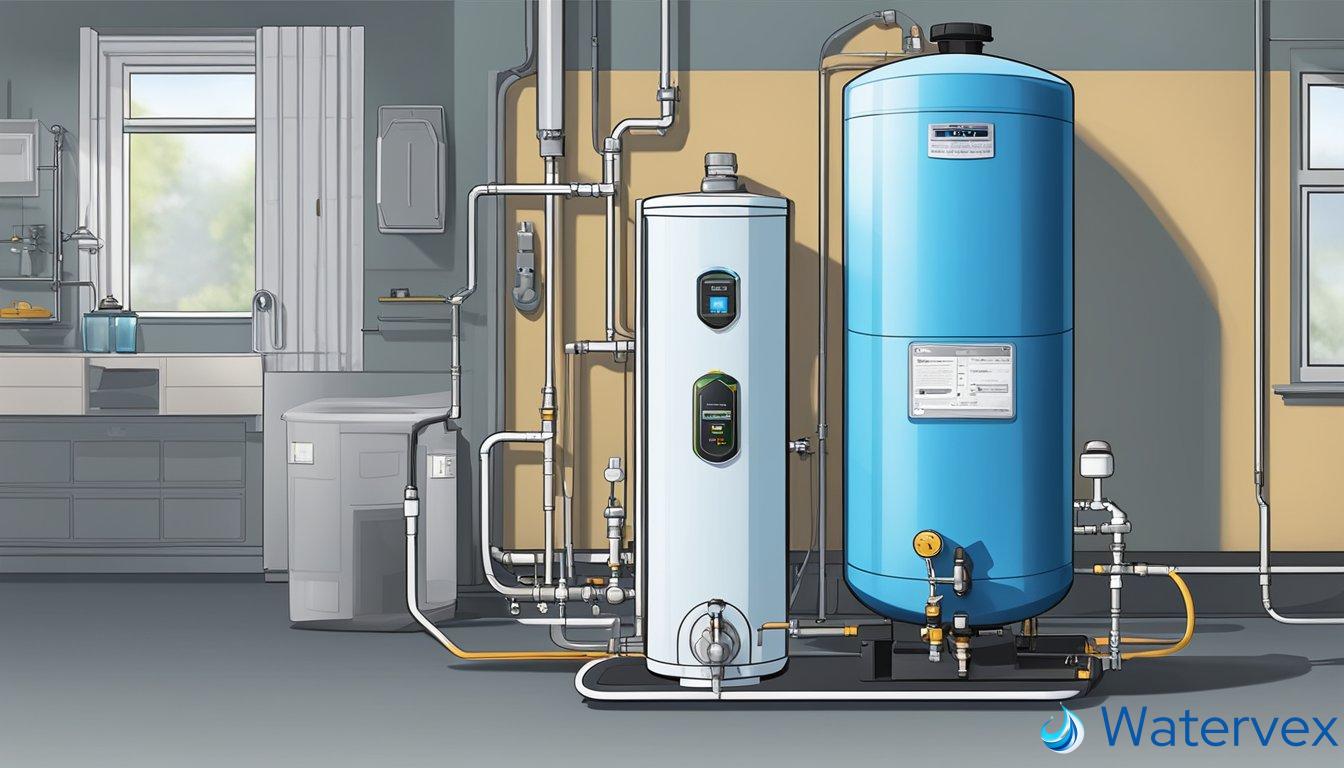Discovering that your water softener is beeping can be startling, as this is not a usual sound you expect from such a device. This beep often serves as an alarm or notification that something is amiss with the system. If your water softener has started beeping, it’s signaling to you that attention is required. Most commonly, this is related to the level of salt in the brine tank, necessary for the regeneration process that removes hardness minerals such as calcium and magnesium from your water.

When the salt level remains low, or other issues like malfunctions in the components or electronics arise, the water softener is unable to regenerate properly. As a consequence, the water in your house might not be softened adequately, leading to potential scale buildup, compromised water taste, and reduced appliance efficiency. It is crucial to pinpoint the reason behind the beeping to maintain the functionality and efficiency of your water softening system.
Understanding the cause of the beeping is essential, and sometimes a simple fix, like refilling the salt, can resolve the issue. However, if the problem persists, it could indicate more complex issues such as clogged filters or faulty parts, requiring professional assessment. Timely troubleshooting is key to ensuring that your water softener continues to provide soft water to your home without interruption.
Key Takeaways
- The beeping sound from your water softener is a notification that requires immediate attention.
- Low salt levels are often the cause, but it can also indicate a need for maintenance or repair.
- Promptly addressing the cause of the beeping ensures continued soft water supply and system efficiency.
What Does Beeping from My Water Softener Indicate?
Beeping from your water softener typically serves as an alarm or alert. It’s a way your system tells you that something requires your attention. Whether it’s a simple reminder for maintenance or an urgent error code, understanding what your water softener tries to communicate can help you troubleshoot problems effectively.
Common Causes of Beeping and Alarms
Your water softener’s beeping sound is typically tied to a few common issues. First and foremost, it could indicate a low salt level in the brine tank; this is the most straightforward alarm. The unit is reminding you to add salt in order to continue softening water properly. Sometimes, clogged components, like the venturi or injector, could also trigger beeping. Such obstructions block the flow of brine, necessary for the regeneration cycle, leading the system to alert you.
Another potential problem is salt bridging—a hard crust that forms in your salt tank, preventing new salt from dissolving into the water. This condition could falsely signal that there’s enough salt when there isn’t, causing beeping due to the softener’s inability to perform its cycle.
- Low salt alarm: Add salt to the brine tank.
- Clogged venturi: Check and clean the venturi valve.
- Salt bridging: Break the salt bridge apart.
In some cases, the beeping could point to a more severe issue like electronic malfunctions or worn-out parts. When internal components fail, your softener will likely produce an error code—leading us to the next section.
Understanding Error Codes and Maintenance Alerts
Error codes and maintenance alerts are your water softener’s sophisticated language of care. They are designed by the manufacturer to communicate specific types of issues. For instance, the system might be due for regular maintenance or have detected an internal malfunction.
When a beeping accompanies a displayed error code, refer to your user manual to decipher its meaning. Each code corresponds to a different problem, like an electrical issue or a mechanical failure, thus providing a clear pathway for troubleshooting.
Here’s a quick reference of what different alerts might indicate:
- H01, H02, etc.: Series codes referring to specific hardware or electronic issues.
- MAINT: Indicates scheduled maintenance—usually annual.
- ERR: General error requiring detailed manual check or professional assistance.
Address these codes promptly, adhering strictly to the manufacturer’s guidelines to prevent further damage and ensure safe, optimal operation of your water softener. Regular maintenance, as per these alerts, helps extend the lifetime of your system and maintains the quality of your tap water.
Troubleshooting Your Water Softener

If your water softener is beeping, it’s important to address the issue promptly to maintain the effectiveness of your water treatment system.
Step-by-Step Guide to Silence the Beeping
First, check the power supply. A simple power outage could disrupt the system. Ensure the unit is plugged in and receiving power. If a blackout occurred, your device may need a reset.
Next, inspect the salt levels in the brine tank. If levels are low, replenish the salt to stop the beeping. Sometimes, the problem is not the salt level, but the system sensors. Give everything a good clean, focusing on the venturi and injector, as sediment buildup can interfere with their function, tricking the system into thinking there’s an issue.
Dealing with Low Water Pressure and Salt Bridges
Low water pressure can strain your water softener. To troubleshoot, check the water pressure in your home. If it’s below the system’s requirements, this could be the cause of the beeping. Resolve any water pressure issues to ensure proper function.
A salt bridge might also cause problems. This is a hard crust that forms and stops salt from dissolving into the water, which can hinder regeneration. Break up any visible salt bridges using a broom handle or a similar tool to gently poke at the crust.
When to Call a Professional for Help
If these steps don’t silence the beeping, or if the system is making unusual noises—suggesting motor issues—then it’s time to call a professional. An expert can diagnose and fix issues that are too complex for the typical homeowner. Regular maintenance from a professional can also prevent future beeps and alarms.
Regular Maintenance and Prevention

When your water softener beeps, it’s calling for attention, much like a nudge from a friend. This beep often signals it’s time to check on preventative maintenance tasks that keep your softener operating efficiently.
Regeneration Process:
Your water softener goes through a regeneration process to refresh the resin bed which captures the hard minerals. Ensuring that this process operates smoothly involves checking that your salt tank has an adequate level of salt since it’s essential for the brine solution that rejuvenates the resin.
- Refill Salt Regularly:
- Clean Salt: Use pure salt with no impurities to avoid salt bridging – that’s where salt forms a hard crust, preventing brine production.
- Stay on Schedule: Refill salt before it dips below half-full, marking calendar reminders if necessary.
Scheduled Service:
Regular check-ups prevent those beeps. Just like visiting the doctor can prevent health issues, scheduling a service for your water softener can pre-empt potential problems that cause beeping.
- Preventive Maintenance Checklist:
- Keep the brine tank clean.
- Check for any salt buildup or blockages.
- Inspect the resin bed for signs of degradation.
By embracing these habits, you contribute to the longevity of your water softener, reduce the likelihood of unexpected disruptions, and can prevent those mysterious beeping sounds that seem like coded messages from the depths of your utility closet. So listen closely to your water softener, and it will serve you well in producing that soft, scale-free water your household treasures.

